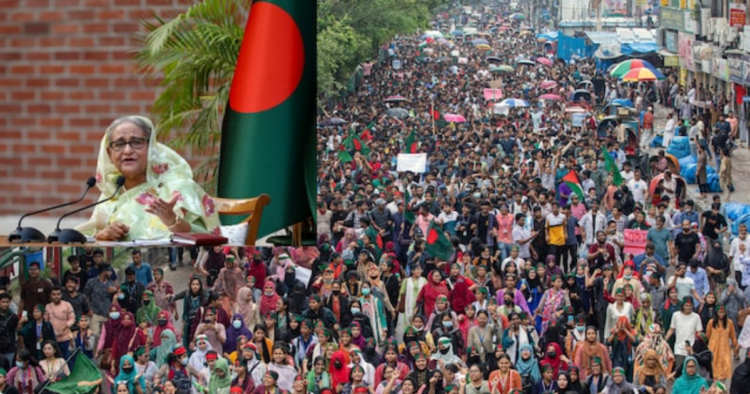Former Indian Ambassador to Bangladesh, Vidya Bhushan Soni, has described the current situation in Bangladesh as “tragic” and believes it was predictable. He said that while some reservations were acceptable, Prime Minister Sheikh Hasina’s policies excessively favored one group, excluding others. Soni noted that such actions were bound to lead to unrest as they affected the daily lives of ordinary Bangladeshis.
Soni stated that Hasina’s overconfidence, stemming from her 15 years in power and the lack of encouraged opposition, led her to impose her will without considering the consequences. He highlighted that the Bangladeshi economy, although not in bad shape, would now face challenges due to the current unrest.
Soni emphasized that people desire an alternative in the political landscape. Without opposition, citizens feel uncertain about the future. He compared this situation to India, where lively political discussions are common. In Bangladesh, the lack of such discussions has contributed to the unrest.
Expressing concern over potential violence, Soni hoped that common citizens would not suffer. He stressed the importance of avoiding mob violence and targeting individuals. He suggested that the protests should be contained, and an interim alternative established before regular political processes could resume.
Soni highlighted the implications for India, noting that Hasina had maintained a good relationship with India. He clarified that India had no role in Bangladesh’s internal matters and believed in non-interference. He urged calm and a return to normalcy in Bangladesh, emphasizing the need for a stable political process.
ALSO READ: “Former Bangladesh PM Khaleda Zia to Be Released from Jail Following Military Takeover”
Regarding the role of the Bangladesh army, Soni mentioned the possibility of an opposition-led alliance. He warned that if the opposition forces could not resolve their differences, the army might be tempted to intervene, which could complicate the political situation further.
Soni urged India to secure its borders to prevent any spillover effects from the crisis in Bangladesh. He emphasized India’s support for democratic processes and its non-alignment with any specific political figure in Bangladesh.
Foreign expert Robinder Sachdeva echoed Soni’s concerns, highlighting the need to seal Indian borders to prevent illegal entry of refugees or extremists. He attributed the protests to longstanding issues like unemployment, corruption, and government job quotas, describing the situation as a “ticking time bomb.”

















Comments